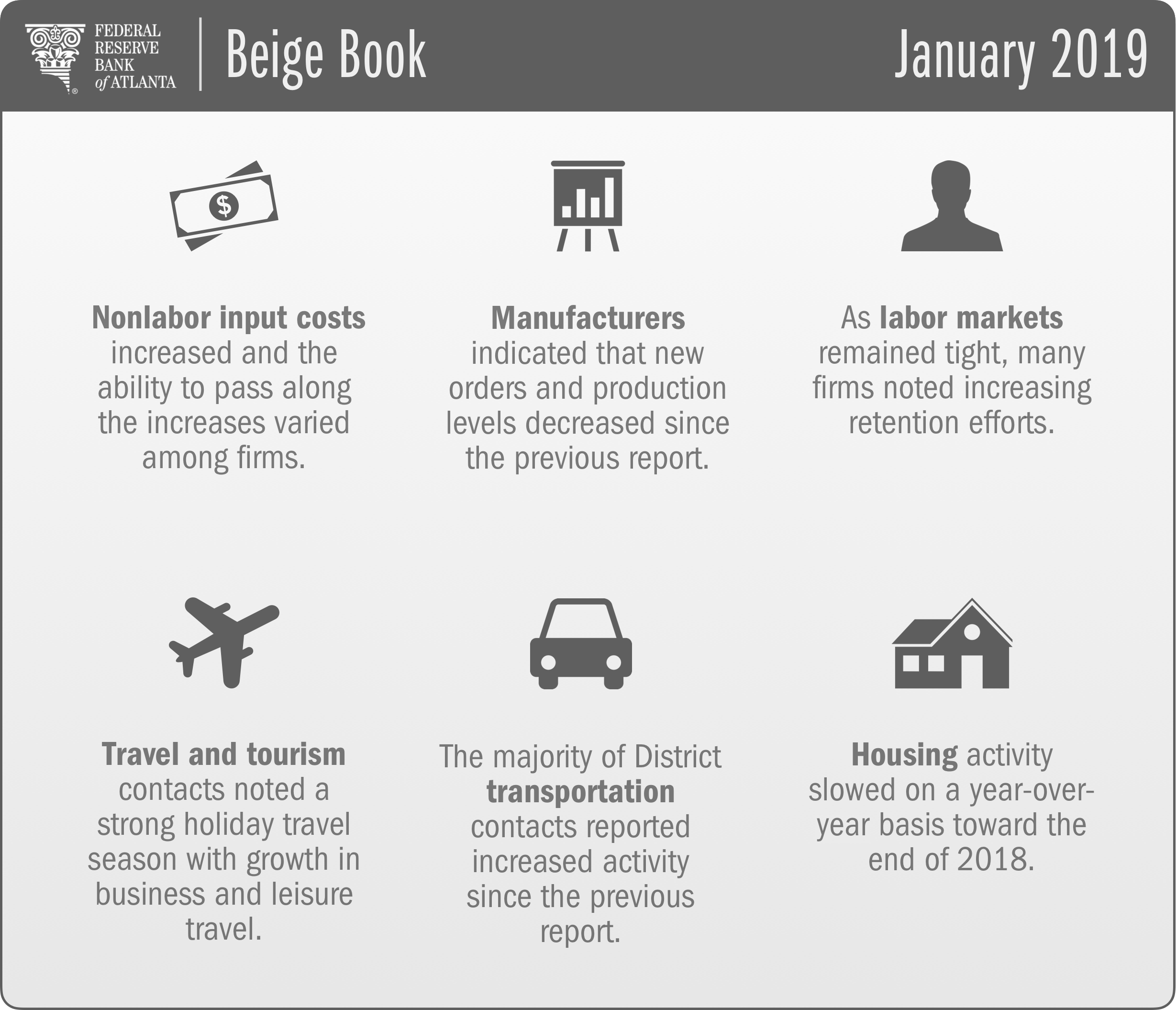
Amid a largely positive Beige Book report on economic conditions in the Southeast, some small businesses report particular challenges competing with larger companies for a dwindling pool of available workers.
Across the board, businesses continued to report pressure to increase wages for low-skill, hourly jobs, notably in the hospitality and retail industries. That’s good news for workers. But the January 16 report notes, “Challenges with escalating wage pressure were especially acute among small businesses.”

Growing numbers of Americans are switching jobs, according to the U.S. Bureau of Labor Statistics. In that context, the past few Beige Book reports have captured a powerful focus on retaining employees in a tight labor market. The latest Beige Book includes a couple of newer nuggets: the particular challenges facing smaller employers, and reports from a few contacts in construction, manufacturing, and health services that they are overstaffing certain jobs to prepare for anticipated growth, figuring it will be difficult to find people in the coming months.
Even as many confront hiring challenges, retailers across the Sixth Federal Reserve District reported steady holiday sales. Not surprisingly, online sales grew faster than those at traditional stores. Travel and tourism contacts also reported growth in business and leisure travel.
In other sectors:
- Companies reported input costs kept climbing, especially for products affected by tariffs. So far, most firms report passing along tariff-related price increase with no serious impact on profit margins.
- Demand for renewable power continued to grow compared to electricity generated by coal, gas, or nuclear plants.
- In many parts of the district, sales of existing homes were flat or declined. Home construction is lagging demand, as builders focus on higher-priced houses in popular submarkets.
- Commercial real estate reports were generally upbeat. Vacancy rates continued to decline, fueled by the industrial, multifamily, and medical sectors. In fact, demand for industrial space, such as big distribution centers, continues to exceed supply. However, contacts reported ongoing concerns about bankruptcies and generally difficult conditions among traditional big-box retailers.
- Cargo shipments were up among contacts at seaports, air freight haulers, and railroads. Logistics firms reported higher volumes of packages delivered during the holidays compared to the previous year.
- Financial institutions generally reported that conditions held steady. Higher interest rates boosted net margins at most banks, while growth in loan volumes continued but at a slower pace, especially in real estate. While measures of loan quality stayed mostly strong, some lenders noted increases in late payments by consumers.
- In the farming business, the U.S. Department of Agriculture designated counties in Alabama, Florida, Georgia, and Mississippi as natural disaster areas because of damages and losses from hurricanes and flooding.




